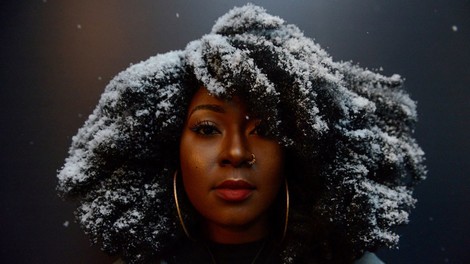Your podcast discovery platform
Curious minds select the most fascinating podcasts from around the world. Discover hand-piqd audio recommendations on your favorite topics.

piqer for: Global finds
Ciku Kimeria is a Kenyan author "Of goats and poisoned oranges" - (https://www.amazon.com/goats-poisoned-oranges-Ciku-Kimeria-ebook/dp/B00HBBWPI6), development consultant, adventurer and travel blogger (www.thekenyanexplorer.com). She writes both fiction and non-fiction focusing on African stories that need telling. She has worked on diverse pieces for various international and local publications including Quartz, Ozy, The East African etc. She has travelled to 45 countries – 16 of them in Africa. 153 countries to go and 63 territories!
"Of goats and poisoned oranges" has been extremely well received in Kenya and beyond. It tells the story of a Kenyan middle aged power couple and their complicated marriage. The novel explores issues of greed, revenge, betrayal and murder. It runs from the 1960s to 2013. It has been described as “Wicked, funny, poignant, wacky, human, a big ball of fun and danger”, “A unique and captivating book”, “Fun and intriguing”, “Impossible to put down once you start reading.”
She recently moved to Dakar, Senegal from Kenya to work on her second novel. She also works at as the Africa Communication Manager at a leading global strategy consulting firm.
She holds a B.S. in Management Science from MIT with minors in Urban Planning and International development studies.
South Africa Embraces The Natural Hair Movement
For black people worldwide, hair is a very political issue. Western standards of beauty have been placed upon us and enforced as "proper", with our own natural hair being branded "untidy" and "unprofessional". Many will remember the Pretoria High School hair protests of 2016, after black girls were forced to straighten their hair by white teachers. They protested against these archaic rules. Matters escalated quickly, with school authorities threatening to arrest the teenagers. For black women, keeping our hair in the form in which it grows out of our heads is considered a revolutionary act—one that will not always be met with acceptance from the west.
As a black child, my thick natural hair often felt like a burden. Like millions of women around the world with hair like mine—disparagingly termed a “nappy” in the United States, “cabelo crespo” in Brazil, and “kroes” in South Africa—the only relief offered by the retail world was to apply harsh chemical treatments that stripped away the hair’s diversity, making it sleek, but often damaged and lifeless in the process.
However, things are changing, and this is great news. The natural hair movement is one that has real psychological benefits for those who choose to go natural. It also has commercial value for brands that cater for this market.
Studies by Mintel, a market research firm, reaffirm this point, says Tonya Roberts, a multicultural analyst at the company. “Our research indicates that wearing their natural hair makes black women feel liberated, confident, and different from others, giving them a tremendous sense of pride in being black while displaying their natural beauty,” Roberts says.
As an African woman with locs, I feel a deep sisterhood with all the black women everywhere who are reclaiming our hair. I also feel a deep sense of pride that we are accepting ourselves as we are—refusing to fit into moulds that were never made to fit us.
